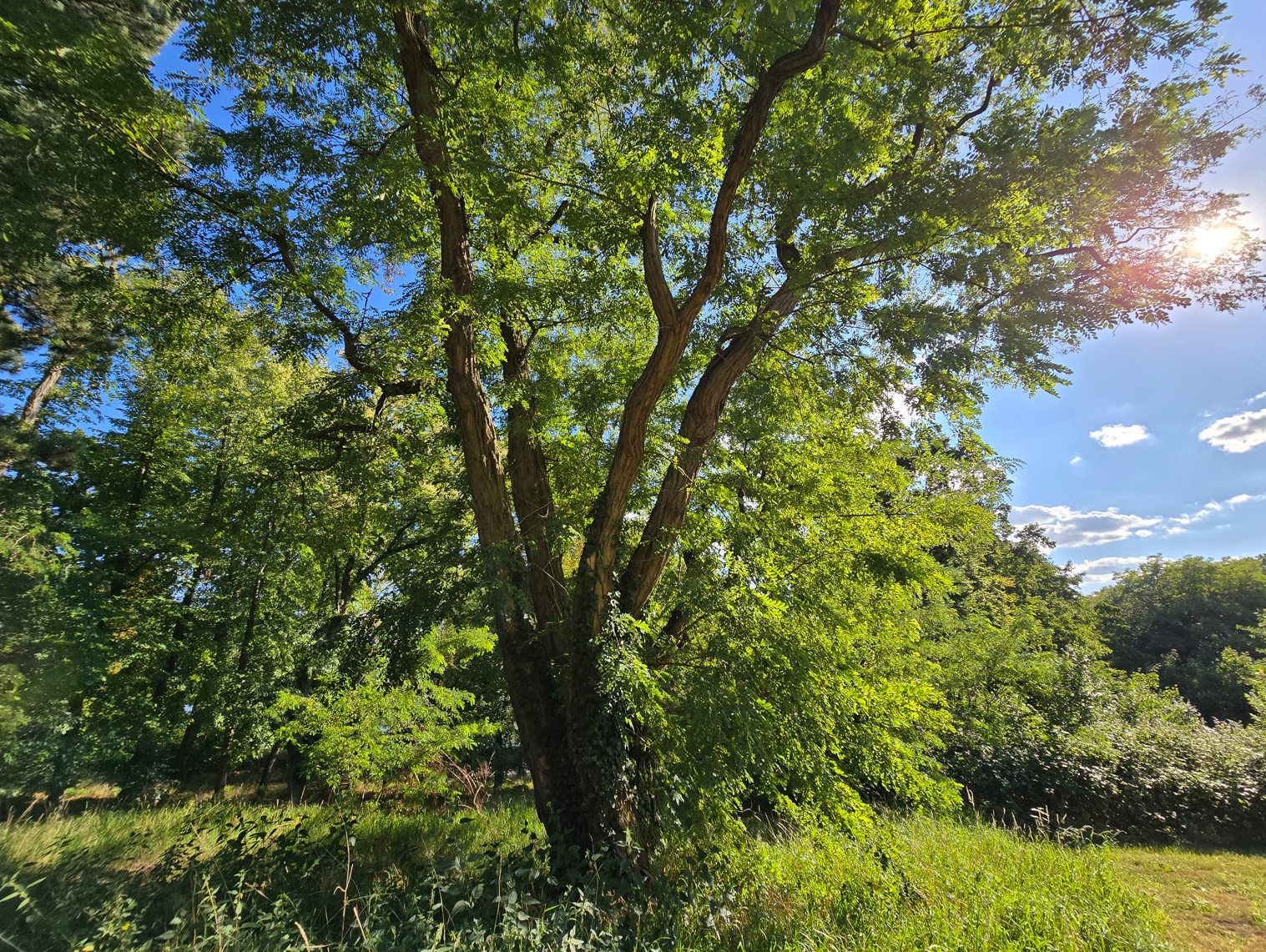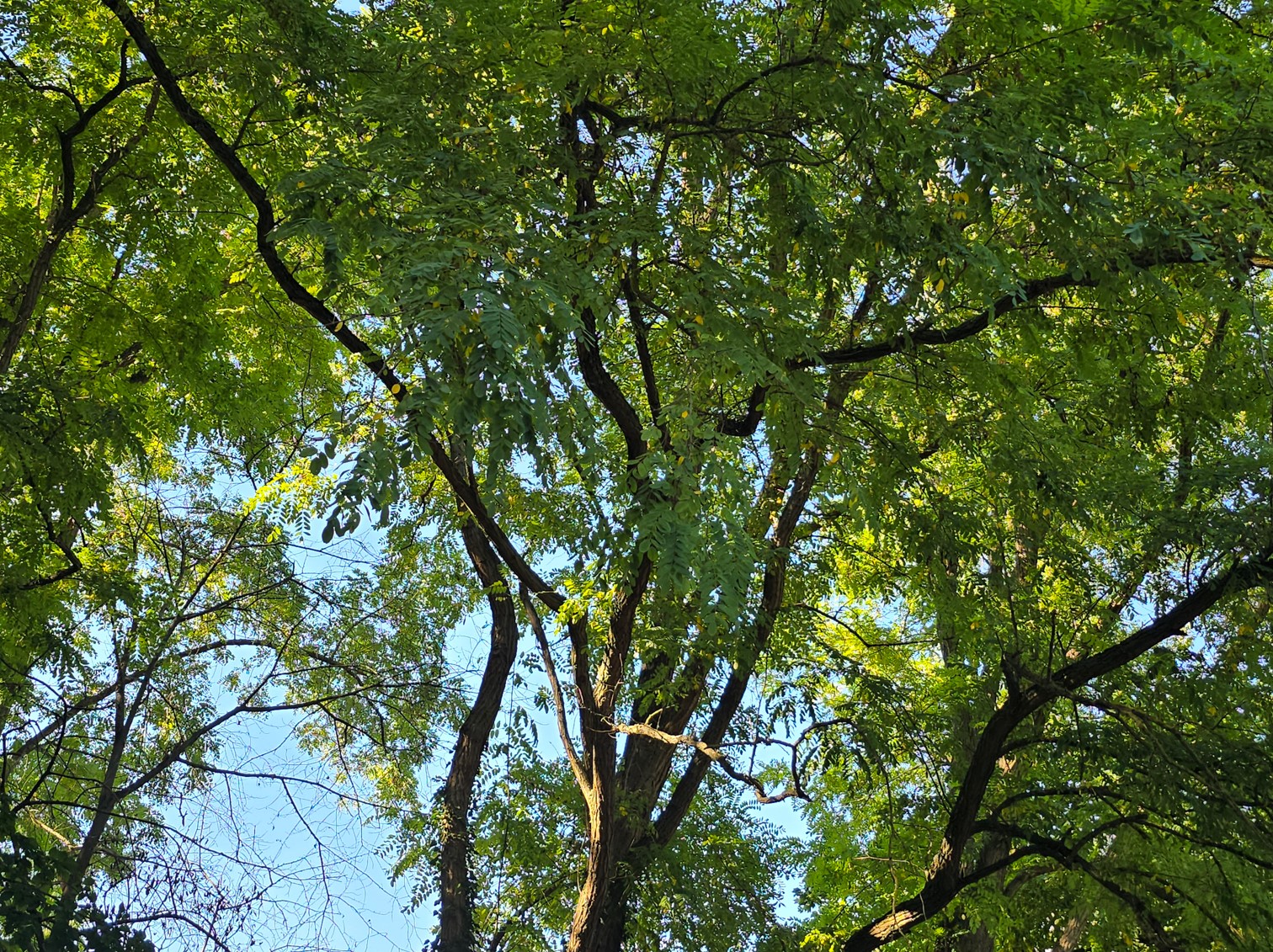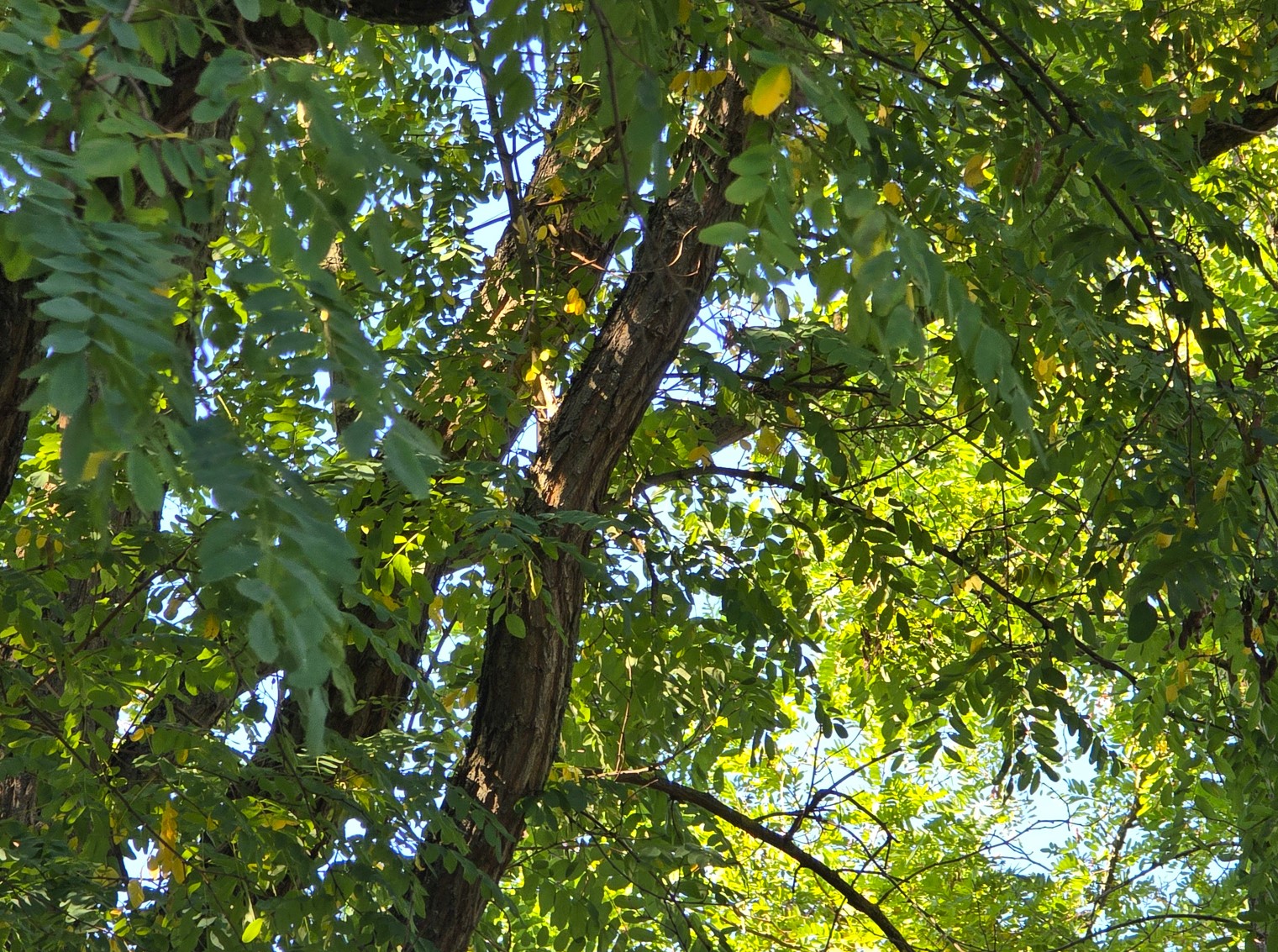Valuable resources for the industry
The black locust (Robinia) thrives where other trees long give up. It tolerates poor soils, grows rapidly, provides valuable compounds, and is remarkable for its resistance to drought and heat. In times of climate change, this makes it a tree species of growing importance – and one that could prove to be a valuable resource for industry and the bioeconomy.
This is precisely where the project “Robi – Robinia as a Raw Material Plant for Industrial Applications” comes in. Its goal is the most comprehensive possible material use of Robinia cultivated in Brandenburg – from the heartwood to the bark. The focus is on the wood components cellulose, hemicellulose, and lignin, as well as extractives from bark and wood, which are to be harnessed for a wide range of industrial applications. Initial studies address potential uses as bio-based thickeners, film-forming agents, resins, and wood preservatives. The results are compared with commercially available products and open up new perspectives for the sustainable use of this remarkable tree species.
From Tree to High-Tech Polymers
The Fraunhofer IAP plays a central role in the project’s laboratory research and process engineering.
- Based on samples of trunk wood, branch wood, twigs, and bark from agroforestry plantations, as well as residues such as bark and wood chips from the wood industry, Fraunhofer IAP conducts extensive investigations.
- In laboratory-scale preliminary trials, suitable extraction, fractionation, and separation methods are developed and adapted to isolate specific compounds and fine chemicals.
- A particular focus is on the characterization of cellulose, hemicellulose, and lignin. These are chemically modified through polymer-analogous syntheses, resulting in new derivatives in oligomeric and polymeric forms.
- The substrates obtained in this way provide the basis for versatile industrial processing and open up new perspectives for the development of market-ready products.
In this way, Fraunhofer IAP makes an important contribution to establishing sustainable material cycles and advancing the bio-based economy.



